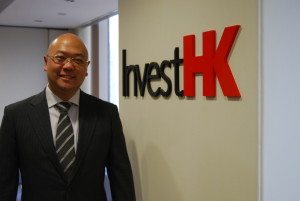
Hong Kong’s Fintech Industry: Opportunities, Challenges and Success Stories
by Fintech News Hong Kong July 13, 2016In the race to become Asia’s fintech hub, Singapore and Hong Kong are undeniably the two most well placed to claim the title.
Singapore and Hong Kong, two of the Four Asian Tigers, are global financial centers which rely on a major capitalist service economy. Low taxation, free trade and specialization in areas of competitive advantage, have helped turn these locations into advanced and high-income economies, earning them the title world-leading international financial centers.
Singapore, a gateway to Southeast Asia, has carved out its competitive niche as a destination for regional headquartered, branch offices and holding companies. With one of the world’s most stable and business-friendly legal and tax regimes, Singapore has long been the preferred location for foreign investors seeking to pursue investments through the ASEAN region.
Hong Kong, a gateway to China for both goods and capital, has a rich history of collaboration. With a highly trained and multi-lingual workforce, a competitive tax system and a world-class infrastructure in transportation and telecommunications, Hong Kong is a magnet for Asia’s financial, business and trading community.
Fintech: Singapore versus Hong Kong
In the field of fintech, it is undeniable that government backing has been Singapore’s greatest strength. Many industry observers have pointed out Singapore’s strong commitment in being a leader in fintech, an ambition the city-state has expressed several times as part of its broader plan of becoming the world’s first Smart Nation.

Ravi Menon, Managing Director, Monetary Authority of Singapore. Photo credit: http://www.financemagnates.com
With a Smart Nation comes a ‘Smart Financial Center,’ the Monetary Authority of Singapore (MAS) has stated multiple times, stressing on the need for further technology development in the financial services and insurance industry. The authority is dedicating money among other resources to foster the domestic fintech startup scene and boost collaboration between the corporate world and the startup world.
Hong Kong, too, has got its chances in the fintech race, but still, the city faces a number of key challenges, according to KPMG. First, it still needs to figure out how best fintech services ban be aligned with its existing advantages to maintain its strengths in trade, payment clearing and serving as an international platform for Chinese companies. Second, Hong Kong needs to ensure that startups and other new tech companies that are deploying solutions have the freedom to establish themselves in areas untouched by existing financial institutions.
In a report released in 2014, Fintech Hong Kong, a trade association representing the industry, advises Hong Kong to establish a clear strategy to capitalize on its current competitive advantages and have a clear understanding of its needs in terms of financial technology and digitalization.
The organization urges the whole financial community to get involved including entrepreneurs, startups, public bodies, the private sectors, scholars and universities.

Charles Ng, Associate Director-General of Investment Promotion, Invest Hong Kong. Photo credit: http://www.lazuli-international.com/
That doesn’t mean Hong Kong is way far behind.
Government support for fintech startups has been growing. The city mapped out plans for its first Innovation and Technology Bureau late last year, and InvestHK, a governmental agency helping overseas companies to set up and expand in Hong Kong, has announced in March the formation of a new team dedicated to bringing fintech companies to the city. With representatives in London and New York, the team hunts out startups and established firms to attract fintech talent and new business opportunities.
Hong Kong’s fintech startup scene
Industry experts have advised for more collaboration between traditional financial firms and fintech ventures, arguing that both worlds can benefit from each other’s strengths.
Accordingly, banks and financial institutions have set up incubators and acceleration programs in hopes to get closer to the local startup community and eventually discover innovative solutions that suit their needs.
The DBS Accelerator, powered by Nest, is one of them. Another one is Accenture’s Fintech Innovation Lab which organizes each year its Asia Pacific program in Hong Kong. During the 12-week mentoring program, the selected teams and startups can test their propositions with the support of Asia’s leading financial institutions and get the opportunity to work with potential clients.
In October last year, Standard Chartered, Baidu and TusPark Global Network, teamed up for the SuperCharger Fintech Accelerator program. The 12-week structured curriculum aims at helping startups and ventures looking to capture Asia’s growth market.
Hong Kong’s startup ecosystem has been growing over the past few years. Today, the city counts 10 accelerators and incubators, 34 co-working spaces and a 46% increase in the number of startups, now accounting for 1,500 ventures, according to Forbes.
Out of this vibrant startup scene, a number of fintech ventures are emerging as regional leaders. WeLab Holdings, one of Asia’s leading Internet finance companies, operates Hong Kong’s leading lending platform WeLend, and China’s largest mobile lending platform Wolaidai. In January, WeLab Holdings raised US$160 million in funding from Khazanah and ING Bank, a round that brought its valuation to nearly US$1 billion.

Photo press conference in Beijing: From left to right: Benoit Legrand, Head of Fintech, ING; Simon Loong, Founder and Chief Executive Officer, WeLab; Wu Han, Chief Economic Officer; Guangdong Technology Financial Group; Bryan Lim, Director, Khazanah Nasional, Director.
8 Securities, a mobile trading and investing service, announced earlier this year Asia’s first free stock trading mobile app. The service, called 8Now!, will allow users to trade over 15,000 US and HK stocks and index funds for no commission.
Another startup worth mentioning is Lenddo, which has developed an algorithm that uses non-traditional data to provide credit scoring and verification to the emerging middle class. Lenddo, which has raised US$14 million in funding so far, has recently partnered with consultancy firm FK BCG to tap into the South Korean market.
Compare Asia Group is Asia’s leading financial comparison platform with a presence in Hong Kong, Indonesia, Malaysia, the Philippines, Singapore, Taiwan, Thailand, and soon, Vietnam. The group offers comprehensive overview across various financial products and has raised US$46 million in funding so far.
Featured image: Hong Kong by leungchopan, via Shutterstock.com.
This article first appeared on Fintech News Singapore







